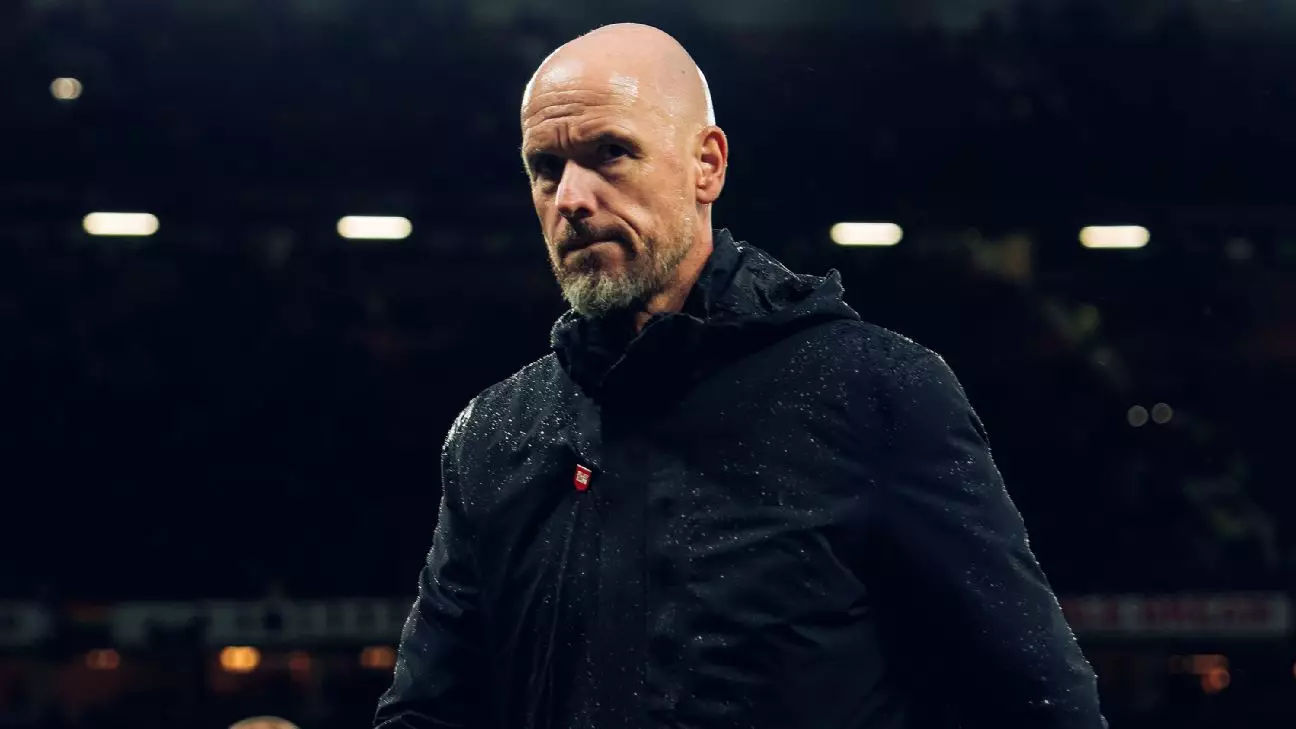Erik ten Hag finds himself in a critical phase of his managerial tenure at Manchester United. This season has unfolded with a series of disheartening performances, leaving the club languishing in the lower half of the Premier League table. After suffering a humiliating 3-0 defeat to Tottenham Hotspur, Manchester United sits in 12th place and trails leaders Liverpool by a troubling eight points. The alarming statistic is that United has only scored five goals thus far, placing them second to last among the league’s offensive outputs. While ten Hag seeks reasons to justify these struggles, the contrast with the successes of his counterparts only deepens his predicament.
In the aftermath of the Tottenham loss, ten Hag pointed to a red card issued to Bruno Fernandes in the first half as a pivotal moment that altered the course of the match. Although there’s a grain of truth in his analysis, it seems almost disingenuous given that Tottenham had already showcased their attacking prowess well before the dismissal. Their ability to dominate possession and create clear chances showcases a side that was already in control of the game. This selective emphasis on the red card reflects a growing pattern in ten Hag’s public statements, where he often underplays the deficiencies on the pitch while seeking external factors to explain away poor results. The statistics from the game—60.4% possession for Tottenham, 12 shots compared to United’s three—paint a stark picture of the reality that eludes ten Hag’s assessments.
Despite achievements like securing the Carabao Cup and the FA Cup during his tenure, it cannot be ignored that ten Hag oversaw the team’s worst Premier League finish. The grim reality includes multiple heavy defeats against rivals, establishing a narrative of failure that is hard to shake. The criticism intensifies against the backdrop of ten Hag’s hefty spending, with over £550 million invested in new players since his arrival. Notably, large transfers such as Anthony for £80 million and Rasmus Højlund for £72 million call into question the effectiveness of his recruitment strategy. In the context of his managerial capabilities, one must wonder if ten Hag’s approach can yield the desired outcomes given that the team appears disjointed and lackluster.
As United prepares for a challenging fixture against FC Porto in the Europa League, followed closely by another crucial league encounter against Aston Villa, the urgency for two positive results could not be more pronounced. The growing discontent within the club is palpable, with sources revealing that management is preparing a contingency plan should performances continue to falter. Ten Hag’s predicament becomes even more precarious when viewed alongside his peers who have managed to spark immediate improvements in their respective teams.
It’s essential to consider the managerial successes elsewhere in the league, such as those achieved by Unai Emery at Aston Villa and Ange Postecoglou at Tottenham. Both managers took over teams struggling to find their footing and transformed them into competitive forces. Emery, who took the reins at Villa Park two years back with the club teetering above relegation, is now solidly ensconced in the Champions League picture. In contrast, ten Hag struggles to forge a united side, with many of his players appearing disenchanted and devoid of chemistry. Even Anthony Martial, once seen as a key figure, now seems lost amidst the turmoil.
The stark contrast in managerial impact illustrates that, when armed with the right skill set and tactical nous, immediate success is achievable irrespective of time. Unlike ten Hag, these managers exhibit clarity in their vision and understanding of their teams. Despite ten Hag’s insistence that he believes in his approach, a growing sentiment among fans and pundits alike indicates skepticism about his ability to lead United into a new era. The chemistry and connection that characterize successful teams seem to elude him, leading to the perception that his squad resembles a collection of misfits rather than a cohesive unit.
As ten Hag stood resolute in his conviction that he isn’t worried about his job, he failed to acknowledge the escalating tensions around him. The image of a rudderless ship heading towards rocky waters may become a fitting metaphor if the necessary turnarounds do not materialize in the upcoming games. His fate now hinges on performances against Porto and Villa, which could either reignite hope or seal his fate. Time is undeniably slipping away, and the pressure is palpable, making it imperative that ten Hag finds a way to navigate the challenges ahead before it’s too late. The survival of his managerial aspirations at Old Trafford hangs in the balance.

